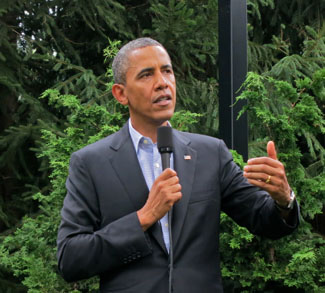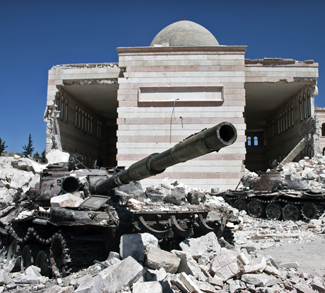Summary
Russia and China’s dual veto on a UN resolution condemning recent violence in Syria shocked and appalled audiences throughout the Western world. Yet the logic underpinning this veto could be more nuanced than we think.
Analysis
There are several cookie-cutter explanations that can be laid over the Sino-Russian UN veto. The simplest one is that these two authoritarian governments fear the power of democracy running amok within their own borders, and thus are unwilling to contribute to any precedent that violates state sovereignty in the name of universal human rights. This explanation has mass appeal because of the fact that it’s been around since the days of the Cold War; people have had a lot of time to get used to it.
Other rationales adorn the language of geopolitics. There are things that Russia simply cannot stand to lose: its crucial ally in the Middle East, its naval base at Tartus (actually a naval resupply facility), or yet another important market for Russian arms ($1.5 billion in the past decade, Russia’s 7th largest customer). Or maybe it’s that China and Russia are unwilling to allow the map of the Middle East to be redrawn in a way that’s favorable to Western interests, nor are they willing to allow Iran to become isolated ahead of a supposed Israel-US strike at some point in the future.
There is no shortage of conventional explanations regarding the Sino-Russian veto, and perhaps there is a kernel of truth to be harvested from every one of them. It’s interesting to note however that while conventional analysts are quick to offer any one of the aforementioned rationales, very few of them will suggest the possibility that the Sino-Russian veto is motivated by the same goal that Western diplomats purport to be working towards: mainly, a reduction in civilian deaths.
The foundation of this interpretation goes something like this: while the situation in Syria may be bad now, it could quite possibly spiral into a regional civil war that could kill millions. The Chinese and Russian governments are of the opinion that there is still a possibility for negotiated rapprochement, one that might grow out of Bashar al-Assad’s recent overtures regarding constitutional reform. There’s a lot wrong with this approach, such as the fact that constitutional reform has been on the table for months and that it’s hard to accept the sincerity of peaceful overtures when their being made by someone who continues to shell his own people. But, the Chinese and the Russians view this as an imperfect plan for an imperfect situation.
After all, in their eyes, the alternative of allowing the UN resolution to pass is downright reckless. After the precedent of Libya, passage of the resolution alone might enable the creative legal interpretations that give rise to Western military intervention. The end result- civil war. Even if intervention didn’t come to pass, the UN resolution could further militarize the conflict and strengthen the hand of the Free Syrian Army– currently an army in name alone, mockingly branded the ‘Facebook Syrian Army’ by activists. A stronger (or actual) Free Syrian Army could better stand up to Syrian security forces and once again, the result is civil war. Such a war would be bloody, sectarian, and primarily fought in urban environments, a combination that not only maximizes civilian impact but also minimizes the effectiveness of Western air power.
In geopolitics as in life, it’s hard to accept powerlessness. Some Western commentators want direct military intervention, others want to arm the Free Syrian Army, but both would lead to civil war. And while there’s no guarantee that such a war would result in political freedoms, it would produce death and human suffering on a scale that would make Homs look like the good old days.
Rightly or wrongly, this is what Vladimir Putin meant when he warned against ‘acting like a bull in a China shop’ in Syria.
Zachary Fillingham is a contributor to Geopoliticalmonitor.com



